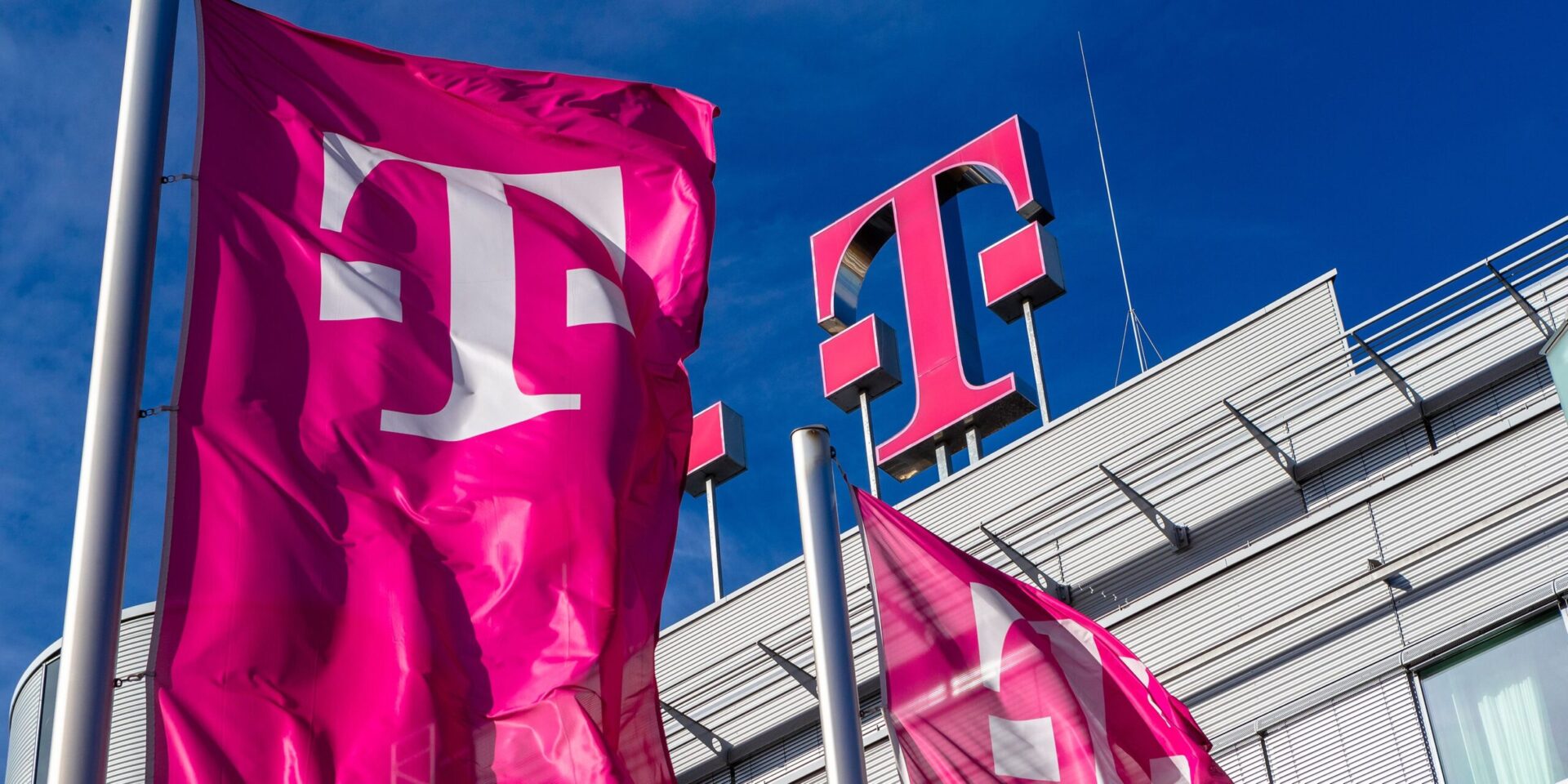Deutsche Telekom is a telecommunications company based in Bonn, Germany. It is one of the world’s leading integrated telecommunications companies, providing a range of telecommunications and information technology services to millions of customers worldwide. We’ll explore the inspiring story of the teleco in this article.
Deutsche Telekom operates in more than 50 countries, with a focus on Europe and the United States. It offers a wide range of services, including mobile and fixed-line telephony, broadband internet, and digital television. It also provides IT services, such as cloud computing and cybersecurity solutions.
The company was founded in 1995 as a result of the privatization of Deutsche Bundespost, the German postal service. It was initially called Deutsche Telekom AG and was listed on the Frankfurt Stock Exchange. Since then, the company has grown rapidly through a series of mergers and acquisitions.
In 2000, Deutsche Telekom acquired the American mobile network operator VoiceStream Wireless, which was later renamed T-Mobile USA. This acquisition marked the company’s entry into the American market, and T-Mobile USA is now one of the largest mobile network operators in the country.
Deutsche Telekom has also made strategic acquisitions in Europe, including the mobile network operator Orange in the United Kingdom, and the Greek telecommunications company OTE. It has also invested in emerging markets, such as India, through its subsidiary T-Mobile International.
Today, Deutsche Telekom is one of the largest telecommunications companies in the world, with more than 200 million customers and over 200,000 employees. It continues to innovate and expand its services, with a focus on delivering the latest technologies to its customers, including 5G mobile networks and high-speed broadband internet.
Founding History of Deutsche Telekom
The origins of Deutsche Telekom can be traced back to the German postal service, Deutsche Bundespost, which was founded in 1947. For many years, the postal service was responsible for providing telecommunications services in Germany, including telephone and telegraph services.
In 1989, the German government passed a law to separate the postal and telecommunications businesses, paving the way for the creation of Deutsche Telekom as a separate entity. The company was officially founded on January 1, 1995, with its headquarters in Bonn, Germany.
Deutsche Telekom was initially a state-owned company, with the German government retaining a 74.9% stake in the company. The company was privatized in 1996, with the government selling its shares on the Frankfurt and New York stock exchanges. This move helped Deutsche Telekom become one of the largest telecommunications companies in the world.
Throughout the 1990s, Deutsche Telekom expanded rapidly both domestically and internationally. The company acquired a number of other telecommunications providers, including T-Mobile USA and UK-based One2One. Deutsche Telekom also invested heavily in research and development, and was one of the first companies to begin deploying 3G mobile networks.
In the early 2000s, Deutsche Telekom faced a number of challenges, including increased competition and a downturn in the telecommunications industry. The company responded by focusing on cost-cutting measures and divesting non-core assets. In 2005, Deutsche Telekom sold its cable television and broadband businesses to Liberty Global, and in 2006 it sold its stake in mobile phone operator O2.
Today, Deutsche Telekom is one of the largest telecommunications companies in the world, with operations in more than 50 countries. The company offers a wide range of telecommunications services, including mobile and fixed-line phone services, internet and broadband services, and television services. Deutsche Telekom is also investing heavily in new technologies, such as 5G networks and the Internet of Things, to remain at the forefront of the telecommunications industry.
Different business segments of Deutsche Telekom
Deutsche Telekom is a leading telecommunications company with several business segments. Here are some additional details about each segment:
T-Mobile: T-Mobile is Deutsche Telekom’s mobile communications brand, operating in several countries around the world, including the United States, Germany, and the Netherlands. T-Mobile offers a range of mobile services, including voice, messaging, data, and other value-added services. In recent years, T-Mobile has focused on expanding its 5G network and acquiring additional spectrum to support its growing customer base.
Telekom Deutschland: Telekom Deutschland is Deutsche Telekom’s fixed-line telecommunications business in Germany, providing a range of services to both residential and business customers. This includes broadband internet, landline phone services, and IPTV. Telekom Deutschland has been investing in its network infrastructure to support higher internet speeds and has also been expanding its fiber optic network to more homes and businesses.
Systems Solutions: Deutsche Telekom’s Systems Solutions segment provides ICT services to businesses and public sector organizations. This includes cloud computing, cybersecurity, and IoT solutions. Systems Solutions has been focused on growing its cloud business and has been partnering with major cloud providers like Microsoft to expand its offerings.
European Aviation Network: Deutsche Telekom’s European Aviation Network is a joint venture with Inmarsat that provides in-flight connectivity services for airlines. The network uses a combination of satellite and ground-based communications to offer high-speed internet access to passengers while in flight.
T-Systems: T-Systems is Deutsche Telekom’s IT services and consulting business, serving large enterprise customers around the world. T-Systems offers a range of services, including cloud computing, cybersecurity, and managed IT services.
Overall, Deutsche Telekom’s business segments span across multiple areas of the telecommunications industry, from mobile and fixed-line communications to ICT services and in-flight connectivity. This diversification helps the company to mitigate risk and provides opportunities for growth in multiple areas.
Revenue Streams of Deutsche Telekom
Deutsche Telekom generates revenue from various sources, including the following:
Telecommunications Services: Deutsche Telekom’s primary source of revenue comes from providing telecommunications services such as mobile, fixed-line, and broadband services. These services are offered to both private and business customers in Germany and other countries around the world.
Sales of Devices: Deutsche Telekom also generates revenue from the sale of devices such as smartphones, tablets, and modems. These devices are sold to customers who subscribe to their telecommunications services.
IT Services: Deutsche Telekom also provides IT services such as cloud computing, hosting, and managed services to business customers. This includes services such as data center management, network management, and security services.
Wholesale Services: Deutsche Telekom offers wholesale services to other telecommunications companies. This includes services such as network access, colocation, and international roaming.
Digital advertising: Deutsche Telekom has a subsidiary called AdEx Partners, which specializes in digital advertising. The company uses customer data to deliver targeted advertising across different devices and platforms.
IT and cloud services: Deutsche Telekom offers a range of IT and cloud services to businesses, including hosting, security, and application management. These services are designed to help companies streamline their IT operations and reduce costs.
Investments: Deutsche Telekom also generates revenue through its investments in other companies. For example, the company has a stake in the mobile payment platform, Square, and in the online classifieds site, Scout24.
It is worth noting that Deutsche Telekom’s revenue streams are not evenly distributed across all its business segments. The company generates most of its revenue from its telecommunications services segment, which includes mobile, fixed-line, and broadband services. The sales of devices and IT services segments also contribute significantly to the company’s overall revenue.
Major Mergers & Acquisitons of Deutsche Telekom
Deutsche Telekom has been involved in a number of mergers and acquisitions over the years, which have helped to shape the company into what it is today.
One of the most significant mergers in Deutsche Telekom’s history was its acquisition of VoiceStream Wireless in 2001. This marked the company’s entry into the U.S. market and paved the way for the formation of T-Mobile USA. The acquisition was valued at $35 billion and made Deutsche Telekom the third-largest wireless carrier in the United States at the time.
In 2006, Deutsche Telekom acquired the Polish mobile operator PTC (Polska Telefonia Cyfrowa) for €2.5 billion, further expanding its presence in Europe. Later that same year, Deutsche Telekom also acquired the Internet service provider Strato AG, which helped the company to expand its offerings in the cloud computing space.
Another significant acquisition for Deutsche Telekom was its purchase of GTS Central Europe in 2013. This acquisition helped to expand the company’s footprint in Central and Eastern Europe and provided access to a fiber optic network spanning more than 20,000 kilometers.
In 2018, Deutsche Telekom acquired UPC Austria, a leading provider of cable TV and broadband services in Austria, for €1.9 billion. This acquisition helped the company to strengthen its position in the Austrian market and expand its offerings in the areas of TV and entertainment.
In addition to these major acquisitions, Deutsche Telekom has also been involved in a number of smaller acquisitions and partnerships over the years. For example, the company acquired the mobile ad tech firm zeotap in 2021, which helped to expand its offerings in the area of data-driven marketing.
Overall, Deutsche Telekom’s mergers and acquisitions have helped the company to expand its reach and diversify its offerings, allowing it to remain competitive in the rapidly-evolving telecommunications industry.
Deutsche Telekom Strategy for Growth
Deutsche Telekom’s strategy for growth is focused on increasing revenue and profits by expanding into new markets, investing in infrastructure, and developing innovative products and services. Here are some of the key elements of their strategy:
Expanding into new markets: Deutsche Telekom is constantly looking for new markets to expand its business. The company has been particularly successful in expanding into emerging markets, such as Eastern Europe and Asia, where it has acquired several mobile network operators in recent years.
Investing in infrastructure: Deutsche Telekom is investing heavily in upgrading its infrastructure, particularly in the areas of 5G networks, fiber-optic broadband, and cloud computing. The company is committed to providing its customers with high-speed, reliable connectivity, and sees this as a key driver of future growth.
Developing innovative products and services: Deutsche Telekom is focused on developing innovative products and services that will appeal to its customers and help it stay ahead of its competitors. For example, the company is developing a range of smart home products and services, as well as new applications for the Internet of Things (IoT).
Building partnerships: Deutsche Telekom is actively seeking partnerships with other companies, particularly in the areas of technology and content. These partnerships allow the company to expand its offerings and provide a more comprehensive suite of services to its customers.
Focusing on customer experience: Deutsche Telekom is committed to providing an excellent customer experience, and is investing in tools and processes that will help it achieve this. The company is focusing on providing personalized, proactive customer service, and is using data analytics and artificial intelligence (AI) to improve its customer interactions.
Overall, Deutsche Telekom’s strategy for growth is focused on staying ahead of its competitors by expanding into new markets, investing in infrastructure, developing innovative products and services, building partnerships, and focusing on the customer experience. By doing so, the company aims to increase revenue and profits over the long term.
Deutsche Telekom foray into new technologies
Deutsche Telekom has been actively working on various new technologies in recent years, with a particular focus on 5G and cloud computing. Here are some of the key areas in which the company has been investing:
5G: Deutsche Telekom has been working on the development and deployment of 5G networks, which promise faster speeds, greater capacity, and lower latency than previous wireless technologies. The company has been rolling out 5G networks in various countries, including Germany, the Netherlands, and the United States.
Cloud computing: Deutsche Telekom has been expanding its cloud computing services, which allow businesses to store and access data and applications on remote servers rather than on their own premises. The company’s cloud services include public, private, and hybrid clouds, as well as cloud-based security and data analytics.
Internet of Things (IoT): Deutsche Telekom has also been investing in the development of IoT technologies, which allow devices to communicate with each other and with the internet. The company’s IoT offerings include hardware and software platforms, as well as consulting services to help businesses integrate IoT into their operations.
Artificial intelligence (AI): Deutsche Telekom has also been exploring the potential of AI technologies, which can help businesses automate processes, make predictions, and analyze data. The company has been developing AI solutions for various industries, including healthcare, manufacturing, and finance.
Cybersecurity: As cyber threats continue to grow in frequency and complexity, Deutsche Telekom has been expanding its cybersecurity offerings to help businesses protect their networks, data, and applications. The company’s cybersecurity services include threat detection and response, identity and access management, and risk assessment and compliance.
Overall, Deutsche Telekom’s investments in these new technologies reflect its strategy of expanding beyond its traditional telecommunications business and into new areas of growth. By developing and offering these innovative solutions, the company is positioning itself to remain a key player in the rapidly evolving digital landscape.
Financial Growth of Deutsche Telekom over the years
Deutsche Telekom has been a leading player in the telecommunications industry, providing services in over 50 countries worldwide. The company has consistently reported strong financial results over the years, with its revenue and profits growing steadily.
In 2020, Deutsche Telekom reported revenue of €101 billion, up from €80 billion in 2015. The company’s net income also grew from €3.1 billion in 2015 to €4.2 billion in 2020. The growth in revenue can be attributed to the company’s expansion into new markets and increased investment in its existing businesses.
Deutsche Telekom’s mobile communications segment has been a major contributor to its financial success, with revenue increasing from €39 billion in 2015 to €49 billion in 2020. The company’s fixed-network business has also shown steady growth, with revenue increasing from €21 billion in 2015 to €23 billion in 2020.
The company’s international operations have been a key driver of its financial growth. Deutsche Telekom’s international revenue grew from €29 billion in 2015 to €39 billion in 2020. The company’s European subsidiaries have been particularly successful, with revenue growing from €20 billion in 2015 to €26 billion in 2020.
Deutsche Telekom’s investment in new technologies, such as 5G and the Internet of Things (IoT), has also contributed to its financial growth. The company has been investing heavily in its 5G infrastructure, with plans to cover 99% of Germany’s population by 2025. Deutsche Telekom has also been expanding its IoT business, which includes connected cars and smart homes.
Overall, Deutsche Telekom has demonstrated consistent financial growth over the years, driven by its expansion into new markets, investment in new technologies, and strong performance of its mobile and fixed-network businesses.
Also Read: AT&T Legacy and Future: A Story of Vision, Growth, and Transformation
Competitors of Deutsche Telekom
Deutsche Telekom operates in a highly competitive telecommunications industry, facing intense competition from a number of key players in the market. Here are some of Deutsche Telekom’s major competitors:
Vodafone Group: Vodafone is one of the largest telecommunications companies in the world, with operations in over 25 countries. The company provides a wide range of services including mobile and fixed-line telephony, broadband and TV services, and enterprise solutions. Vodafone competes with Deutsche Telekom in key markets such as Germany and the UK.
Telefonica: Telefonica is a Spanish telecommunications giant that operates in over 20 countries, providing mobile and fixed-line telephony, broadband, and TV services. The company’s most significant markets are Spain, Brazil, and the UK, where it competes with Deutsche Telekom.
Orange: Orange is a French telecommunications company that operates in over 30 countries, providing mobile and fixed-line telephony, broadband, and TV services. The company is a major competitor to Deutsche Telekom in France and other key markets.
BT Group: BT Group is a UK-based telecommunications company that provides a range of services including fixed-line telephony, broadband, and TV services. The company also operates in other markets such as IT services and solutions. BT Group is a significant competitor to Deutsche Telekom in the UK market.
AT&T: AT&T is a US-based telecommunications giant that provides mobile and fixed-line telephony, broadband, TV services, and enterprise solutions. The company operates in over 20 countries and is a major competitor to Deutsche Telekom in the US market.
China Mobile: China Mobile is the largest mobile network operator in the world, providing mobile and fixed-line telephony, broadband, and other services in China and other key markets. The company is a significant competitor to Deutsche Telekom in the Asian market.
In addition to these major competitors, Deutsche Telekom also faces competition from a number of smaller telecommunications companies and new entrants in the market. To remain competitive, Deutsche Telekom has invested heavily in expanding its network infrastructure, developing new products and services, and improving customer experience.
To read more content like this, subscribe to our newsletter



